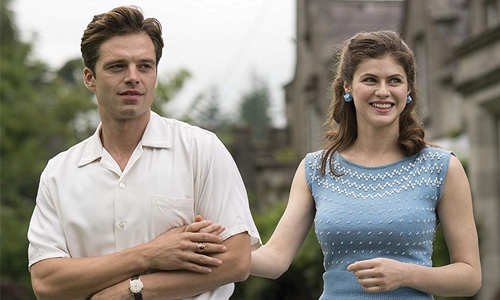We Have Always Lived in the Castle: an arch, feminist fairy tale
Stacie Passon’s We Have Always Lived In The Castle premiered on the festival circuit before the Netflix launch of Mike Flanagan’s series based on Shirley Jackson’s The Haunting Of Hill House, but it’s certainly set to benefit from a resurgence of interest in adapting Jackson’s fiction for the screen.
A feature-length take on Jackson’s short story, The Lottery, is also in development. Following a family tragedy six years earlier, Mary Katherine “Merricat” Blackwood (Taissa Farmiga), her older sister Constance (Alexandra Daddario), and their ailing uncle Julian (Crispin Glover) live in isolation on their family estate away from the local village. Constance hasn’t left their property in the intervening period since she was tried and acquitted of the poisoning death of her parents; Julian was also poisoned, but managed to survive.
With the villagers believing Constance got away with murder, and harassing Merricat when she goes to town for shopping, the younger sister practices her own form of protective magic as a means of keeping harmful forces at bay. She increases her efforts tenfold upon the arrival of their cousin, Charles (Sebastian Stan), who has come to visit, attempting to lure Constance away with promises of seeing the world, while also setting his sights on the family’s fortune hidden in a safe. Tensions rise as Charles berates the perceived derangement of Merricat and Julian.
While Flanagan’s modern update of The Haunting Of Hill House was a significant reimagining of its source material, Passon’s film, written for the screen by Mark Kruger, is more faithful to Jackson’s gothic novel, her final one, in period setting and narrative. There are, however, still some significant changes, particularly in the ending, that may prove divisive for Jackson-devotees. The film has engaging performances and some fine costume work, in particular. As written, though, while the novel’s events make the jump to the screen, the spirit of the eerie prose is lost in translation.
Related Posts

